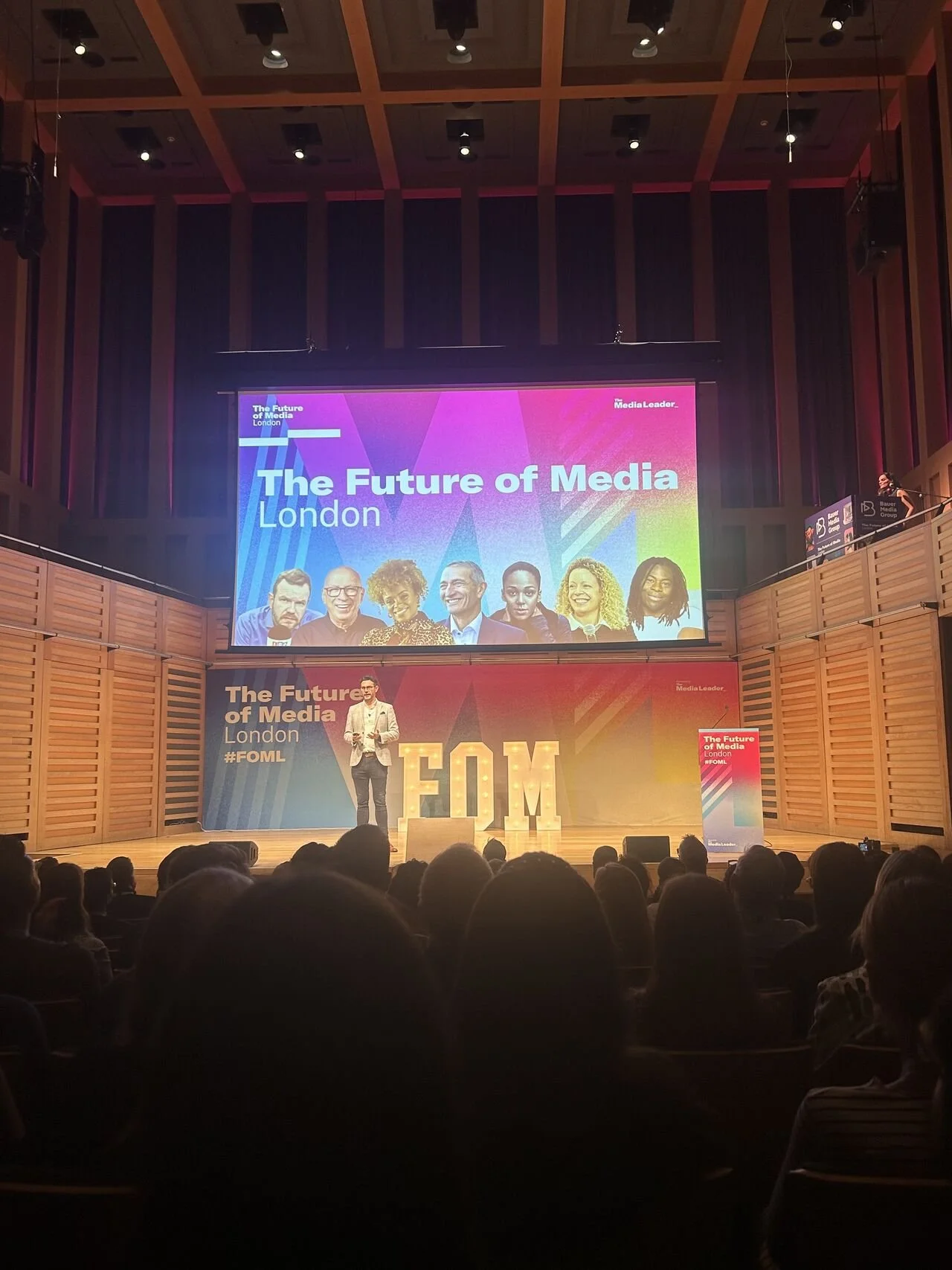Data, creativity, and incrementality: lessons from The Future of Media London event
In today's fragmented media landscape, where audiences are increasingly spread across various platforms and devices, marketers face both a challenge and an opportunity to improve effectiveness. The Future of Media London event offered key insights from industry leaders on how to navigate this complexity, exploring topics such as data-driven strategies, incrementality and creative innovation. Here are our top key takeaways.
Reaching the right people, in the right mindset, at the right time
Fragmentation doesn't mean chaos - it means there are more opportunities for brands to connect with audiences. For instance, as on-demand content reshapes TV viewing behaviour, with fewer channels being watched for longer periods, brands can reach broader audiences by engaging across multiple genres and platforms. By leveraging data-driven insights, marketers can not only understand the media people are consuming but also when and why. This enables brands to deliver messages that resonate in the right context and mindset. Contextual relevance strengthens memory, making ads more memorable and impactful while planning by mindset aligns brands with the emotional state of their audience and fosters deeper connections. Dynamically tailoring messaging across platforms can create real-time, personalised experiences, such as triggering digital out-of-home ads based on location or time, making each interaction feel personal and relevant.
Balancing data and creativity for long-term success
Creative quality drives 60-70% of campaign success, so pre-testing and refining creative assets using data insights is crucial. However, a general over-reliance on data can lead to short-term gains at the expense of long-term success. Building brand salience and fostering emotional connections with consumers requires more than just precise targeting - it demands strong creativity. While focusing on granular data can deliver immediate wins, it's essential to maintain a broader perspective on long-term KPIs, such as brand awareness and recall. In a fragmented media landscape, where consumers constantly move between platforms, creativity is the glue that keeps messaging cohesive across touchpoints. Brilliant creative and data have to go hand in hand.
The importance of incrementality
Incrementality is essential for maximising marketing effectiveness, as it focuses on measuring the incremental impact of campaigns across channels beyond traditional metrics like ROAS. Marketers can make data-driven decisions that improve overall performance by analysing how much additional value a campaign generates. Setting clear goals and hypotheses ensures that the right data is collected and analysed effectively. By adopting incrementality as a core measurement, marketers can ensure their campaigns are driving real, measurable business outcomes in an ever-evolving media landscape.
The Future of Media London event highlighted how increasing media fragmentation allows brands to rethink traditional approaches, embracing dynamic, data-driven strategies to effectively reach and engage with audiences. By leveraging data-driven insights and balancing them with creative innovation, marketers can devise meaningful, contextually relevant experiences that resonate with consumers. Ultimately, success lies in reaching the right audience at the right time, across the right platforms, with strong creatives, while using incrementality to maximise effectiveness.
Ready to future-proof your marketing strategy? Contact our team to explore how we can work together to navigate the evolving media landscape and deliver impactful, data-driven campaigns that resonate with your audience.
Anna Henderson
Our Strategy and Research Executive, Anna, combines fresh perspectives with a strong analytical foundation to develop innovative marketing strategies for our clients.












